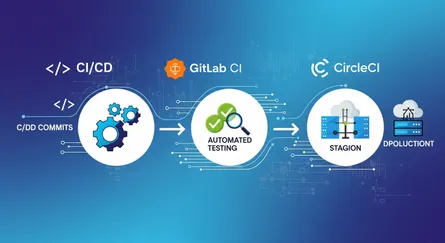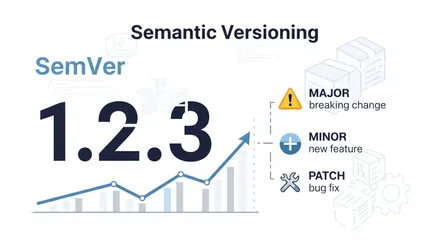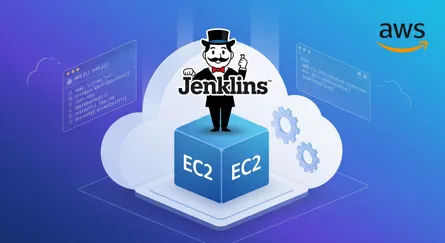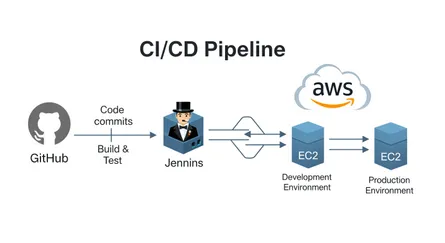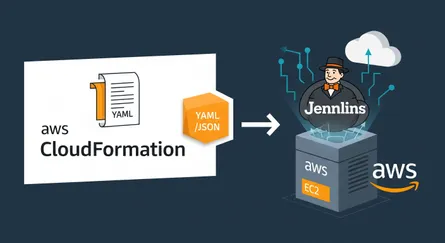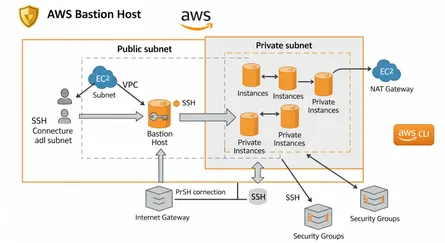What is DevOps, and why is it important?
The name “DevOps” is a combination of the terms “development” and “operations,” although it refers to a far broader range of principles and procedures than those two terms alone or together. Security, teamwork, data analytics, and many more concepts are all part of DevOps.
DevOps refers to methods for accelerating the procedures by which an idea—such as a new software feature, a request for an improvement, or a bug fix—goes from development to deployment in a production environment where it may be useful to users. These methods call for frequent communication between development teams and operations teams, as well as an attitude of empathy for one another. Additionally required are scalability and flexible provisioning. Those that require the most power benefit from DevOps because of self-service and automation.
What connection exist between containers and DevOps?
DevOps expedites the process of taking an idea from conception to deployment. DevOps is fundamentally based on standardizing environments for the duration of an app’s lifecycle and automating repetitive administrative duties. Containers can provide uniform environments, but managing them requires a platform with built-in automation and support for any infrastructure.
What is the culture of DevOps?
DevOps depends on a collaborative environment that supports open source ideals and open, agile working practices.
It is possible to create a DevOps culture by modeling it after the culture of open-source software projects. In open-source communities, collaboration usually takes the form of open information exchange. Implementing cultural changes such as increasing openness in decision-making, removing the fear of failure from the experimental process, or putting in place a reward system that fosters trust and cooperation can all be helpful. For the purpose of assisting with these sorts of projects, several businesses investigate consulting services for digital transformation.
Your development and operations teams may contribute to fostering an open culture if the appropriate leadership and incentive programs are in place. But when this culture permeates the whole company, DevOps becomes the most successful. DevOps is for everyone, even if the word alludes to development and operations.
What is the DevOps process?
Modern application development demands different procedures than earlier methods did. Agile methods are popular in software development teams. DevOps is not an afterthought for these teams. In fact, the Agile Manifesto’s first of 12 principles is “Customer delight through early and continuous product delivery.” Because of this, DevOps teams place a high value on continuous integration and continuous deployment (CI/CD).
However, simply altering your development and operational procedures is insufficient. If you want to truly improve the way you provide software, you must use systems thinking. Accordingly, DevOps will bring about changes in both the teams that provide end-user support and the business units that seek development work. The secret lies in an ongoing feedback loop between the firm and its customers.
The way you do the task itself won’t need to alter; your method will. The type of employment you undertake will inevitably alter as well. With DevOps, you may develop new forms of software that are more suited to this continuous delivery cadence rather than merely speeding up the production of the same old monolithic software.
Because of this, DevOps teams frequently use a microservices architecture while creating their software and use APIs to connect the services. Teams produce work more quickly when they concentrate on developing smaller chunks of functionality, therefore you must pay attention to how services and APIs are maintained and have a plan for integrating everything, such as agile integration. Even though these sorts of changes might be difficult to implement, the correct technology can help you get going right away. You can speed up your operations using automation, and eventually move your DevOps workloads to the cloud. According to an IDC report, 85% of IT executives believe automation is essential to their DevOps approach. This is so that an infrastructure can endure the continuous code changes brought on by DevOps.
What are the DevOps platform and tools?
The success of DevOps depends on choosing tools that complement your processes. Your operations must employ extremely flexible platforms and handle their infrastructure the same way that development teams treat their code if they are to stay up with the quick development cycles. Manual deployments are cumbersome and prone to mistakes. Automation may make platform deployment and provisioning simpler. These manually operated jobs are managed by Site Reliability Engineering (SRE) utilizing software and automation. The objectives of a DevOps team can be further supported by an SRE strategy.
Through continuous deployment, how can DevOps aid in scaling?
A continuous integration and continuous deployment pipeline (CI/CD) is a key result of applying DevOps. You can release apps to consumers often and check the quality of your software with little to no human involvement by using CI/CD. In order to rapidly discover and fix issues and defects, CI/CD adds continuing automation and continuous monitoring throughout the lifespan of apps, from the integration and testing phases through delivery and deployment. The development and operations teams collaborate in an agile manner to support these connected processes, which are collectively referred to as a “CI/CD pipeline.”
What is the DevOps lifecycle?
The DevOps lifecycle is a set of procedures that are used to develop, test, and deploy software. The DevOps lifecycle is a set of procedures that are used to develop, test, and deploy software. The DevOps lifecycle is a set of procedures that are used to develop, test, and deploy software. The DevOps lifecycle is a set of procedures that are used to develop, test, and deploy software.
What is the DevOps security?
DevOps isn’t only about development and operations teams, as we just said. Organizations must think about how security fits into the software life cycle in order to fully benefit from a DevOps strategy. This calls for considering core security from the beginning of the planning process. Additionally, it entails automating a few security elements to prevent a delay in the DevOps workflow. You may achieve your DevOps security objectives by using the appropriate technologies for integration security. Effective DevOps security, however, need much more than just new technologies; it relies on the cultural shifts brought about by DevOps to incorporate the work of security teams as quickly as possible. By bridging the gap between development and operations, DevOps expedites processes, yet the efficiency gained may be compromised.
Previously, security was the exclusive responsibility of a small team that was added during the development process. Security is now an integrated, shared responsibility inside a collaborative DevOps architecture.
What is the DevOps methodology?
- Continuous Integration (CI): The process of integrating code changes into a shared repository several times a day. This is done to ensure that the code is always in a deployable state.
- Continuous Deployment (CD): The process of automatically deploying code changes to a production environment several times a day. This is done to ensure that the code is always in a deployable state.
- Continuous Monitoring (CM): The process of monitoring the production environment to ensure that the code is always in a deployable state.
- Continuous Feedback (CF): The process of gathering feedback from users to ensure that the code is always in a deployable state.
- Continuous Learning (CL): The process of learning from the feedback to ensure that the code is always in a deployable state.
References
- What is DevOps? - Atlassian
- What is DevOps? - Amazon Web Services (AWS)
- What is DevOps? - Microsoft Azure
- The DevOps Handbook by Gene Kim, Jez Humble, Patrick Debois, and John Willis
- What is CI/CD? - Red Hat
- What is DevSecOps? - Red Hat
- Agile Manifesto
- Site Reliability Engineering (SRE) - Google
- Microservices - Martin Fowler
- Continuous Integration - Martin Fowler
- What is a CI/CD pipeline? (Internal link, assuming this is a valid path)
- DevOps and Containers - Docker
- The Phoenix Project: A Novel About IT, DevOps, and Helping Your Business Win by Gene Kim, Kevin Behr, and George Spafford
- State of DevOps Report - Puppet (Annual report with insights)

